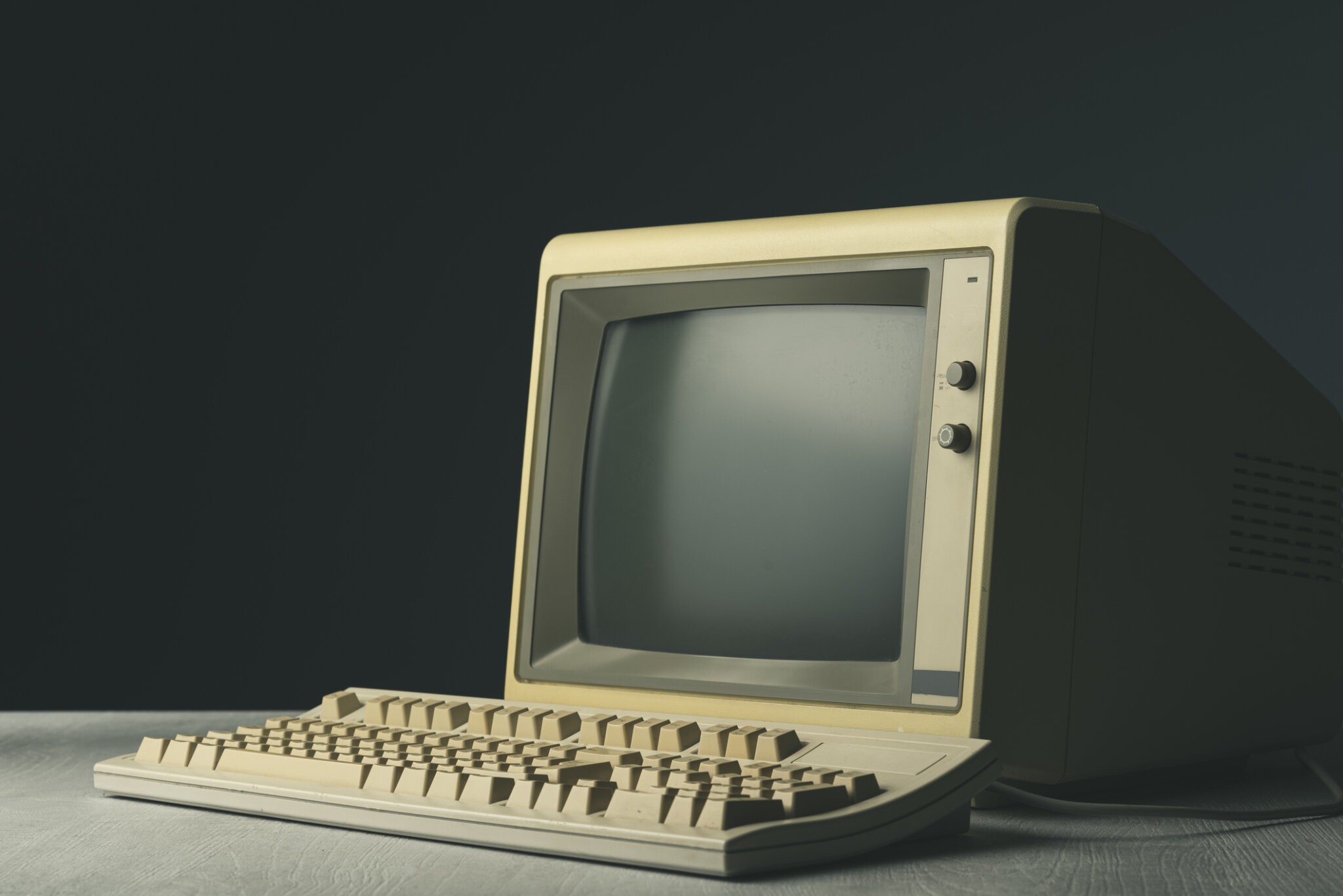The Great Computer Race of 1982

Every time I send out an email, my laptop makes a swooshing noise. It’s the kind of noise one of the fastest new muscle cars on the road — Dodge Challenger SRT Demon 170 with 16 cylinders and 1,025 horsepower — might make if it roared by, missing you by inches as you stepped off the curb. My laptop has valuable work to do, sending important messages off to faraway places in the blink of an eye.
It makes me think of a time, years and years ago, when we conducted a computer race at Dan’s Papers.
Way back then, this was about 1980, computers had just been invented. In the early years, messages got sent over telephone lines. You’d click the tip of a telephone wire into the back of your computer, type your message onto a tiny screen, add the telephone number of who the message should go to, then press send. No swoosh took place. Instead you’d hear a screeching sound broken up by several beeps, then silence. When it stopped, it was done.
It seemed that a message took about 10 seconds to go from one place to another, next door or off to Miami. In my mind, I imagined it as a rocket zooming at hyperspeed to some central location, which I told people, could be in Grand Forks, North Dakota, where a rerouting system would take it in, bend it a bit and send it off expertly to its new destination, for example, Miami. I liked imagining that.
In any case, in 1982, something new was invented. And now no telephone hookup was needed. Just send it off invisibly — it had something to do with radio waves, I thought — and things would go faster.
But how much faster? After buying two new IBMs that year — nobody was selling the older models — we here in Bridgehampton would be able to find out. In our office building, a former private home on Main Street, we had the older models in production on the first floor former dining room, but a new IBM in sales also on the first floor in what had been the kitchen. And on the second floor, we had the older model in a former bedroom now used by the bookkeeper, while in another former bedroom, now my office, I had the newer IBM.
Here’s how I set up the race. The front office receptionist, who had a loud voice, would stand on the landing, halfway up the stairs. At a signal from her, I would fire off a message on my new computer to the new computer in sales while at the same time the bookkeeper would send off the same message on her old computer to another old computer in production. We’d see who was first.
I ordered the staff to meet in the old living room, now our front lobby. Drop whatever you’re doing for a few minutes, I told them.
“This is all about Grand Forks, North Dakota,” I began. Everyone knew what I was talking about. “From there and back. The old versus the new. We’re gonna have a race.”
The receptionist’s loud shout of “Go!” would replace a starting gun. And a subsequent shout of “IBM!” from sales, with their new computer, or “CompuServe!” from the older production computer, would be the checkered flag.
“Is anyone offering odds?” a salesman, one of the wise guys, asked. “Can’t we give the CompuServe a handicap?”
“No time for this,” I said. “OK, everybody, let’s do it.”
I clapped my hands.
And off everybody went, most to gather around one of the receiving computers downstairs.
Climbing the stairs, the bookkeeper asked me what we should type as the message.
“Whatever you want,” I said. “I’ll do the same. But keep it simple. And type it in as soon as you sit down so it’s before Florence shouts ‘Go.’”
“How about, ‘Hello, Mr. Watson. Can you hear me?’ That’s what was said when Alexander Graham Bell …”
“OK. I’ll do that too.” I said. “Meet you on the other side.”
About three minutes later, Florence called to us from the landing.
“Ready?”
Both Hal and I yelled back, “Yes!” We’d typed in what we’d agreed upon.
“Ready. Set.” She paused.
“Just say ‘Go!’” I shouted.
“We’re ready,” Hal said.
Our fingers were poised over the send key.
“And go!” Florence shouted.
I heard the now familiar whooshing sound, and simultaneously, the bookkeeper’s softer shrieking sound. And a second later, a triumphant “IBM!” shout came from sales.
A lot of shouting then occurred. And after that, silence. Then after eight or nine seconds, “CompuServe.” After which, several people booed.
Thus, in our office, the new age of computers was affirmed. And soon after came AOL’s “You’ve got mail,” Pong, the Super Mario Bros., Where in the World Is Carmen Sandiego?, Apple, Google, YouTube, Facebook, Instagram, ESPN, Netflix, global warming, 9/11, TikTok, Elon Musk and artificial intelligence.
Today, the Dan’s Papers building, which I’d bought for $42,000 in 1970 and sold for $1 million in 2010, is the home of the McLoughlin Construction Corp.
But in between, around 1995, it came to also be the home of a private baking contest at the great round table on the now enclosed porch by the front door.
The contest was organized by a talented New York City chef named Sarabeth Levine without my permission. She had approached some staff members at Dan’s Papers about who could bake the best apple pie. They’d meet for a half hour. She’d come back in a week, and she’d be the judge.
Levine was, at the time, the founder and owner of the celebrated Sarabeth’s restaurant chain in Manhattan and Washington, D.C. She got five takers, and the following week, with herself as judge, did a tasting and awarded a prize. I’m not sure what it was. Might have been a dinner for two. And after she had chosen the winner, tasting the pies of each of the other entrants, suggested how the baking of the four runners-up could be improved.
She did this every week for a month. I was honored to have her do it. And in the end, she improved the baking efforts of about a dozen employees. And after that, whenever I saw her around town I’d remind her of it.
I have so many fond memories of our Bridgehampton office.
To read more of Dan Rattiner’s stories, go to DansPapers.com/voices/dan-rattiners-stories.




